(NewsUSA) - Thermally modified Real American Hardwood® is a durable, sustainable product gaining traction in U.S. home design. Developed in Finland in the 1990s, the process involves heating wood to over 400°F in a low-oxygen chamber, permanently altering its cellular structure to boost resistance to moisture, decay, and insects—without chemicals. It’s also more dimensionally stable, making it less likely to warp or twist. “Thermally modified hardwood is an eco-friendly alternative to pressure-treated wood,” notes Ian Faight of the American Hardwood Information Center. “For homeowners, this versatile, low-maintenance material is an excellent choice for exterior applications like decking, siding, and outdoor furniture, as well as for interior uses like flooring and cabinetry.” Here are six examples of its remarkable adaptability and great looks.
- Thermally modified Real American Hardwood® is a durable, sustainable product gaining traction in U.S. home design. Developed in Finland in the 1990s, the process involves heating wood to over 400°F in a low-oxygen chamber, permanently altering its cellular structure to boost resistance to moisture, decay, and insects—without chemicals. It’s also more dimensionally stable, making it less likely to warp or twist. “Thermally modified hardwood is an eco-friendly alternative to pressure-treated wood,” notes Ian Faight of the American Hardwood Information Center. “For homeowners, this versatile, low-maintenance material is an excellent choice for exterior applications like decking, siding, and outdoor furniture, as well as for interior uses like flooring and cabinetry.” Here are six examples of its remarkable adaptability and great looks.
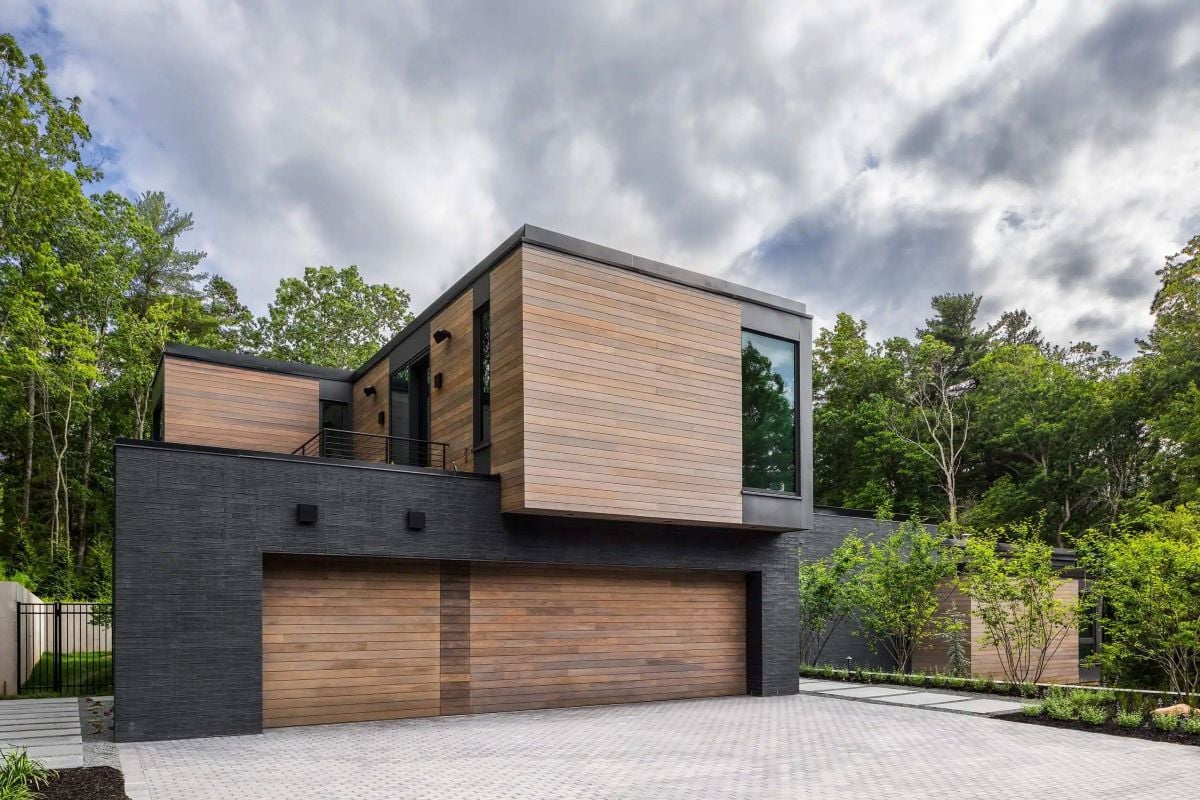
Pennsylvania poplar siding from Americana™ Thermally Modified Hardwoods envelops this contemporary residence in Biltmore Forest, North Carolina, by Vellum Architecture and Design. The poplar’s rich tones and clean lines enhance the home’s modern aesthetic, while its durability and stability—achieved through heat treatment—ensure lasting performance against moisture, decay, and warping. Photo courtesy of 161 Photography
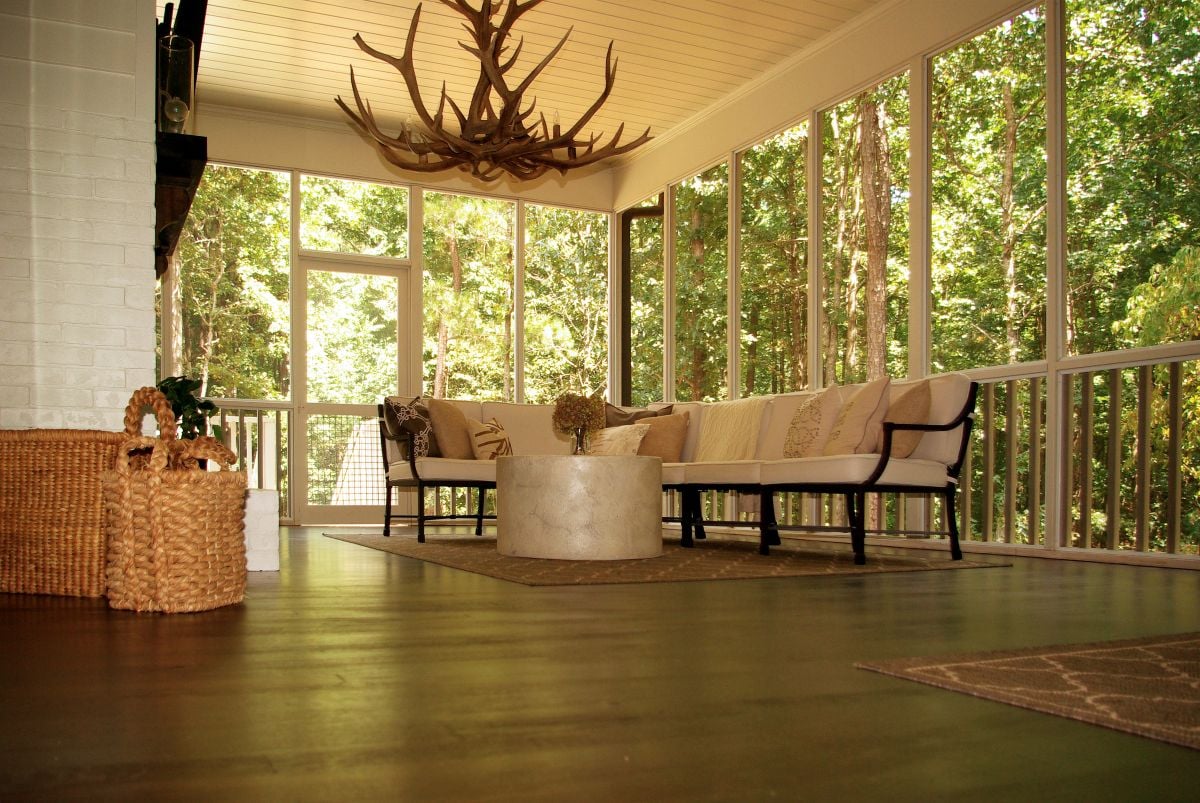
VikingWood™ thermally modified sweet gum flooring enhances the covered porch of this Lake Lanier, Georgia, family home, offering a natural, chemical-free alternative to treated wood. The thermal process adds structural stability and fungal resistance while producing a deep, chocolate hue that helps create a warm, inviting setting for the retreat designed by Jillian Mitchell of Details Design. Photo courtesy of VikingWood, AHC Hardwood Group
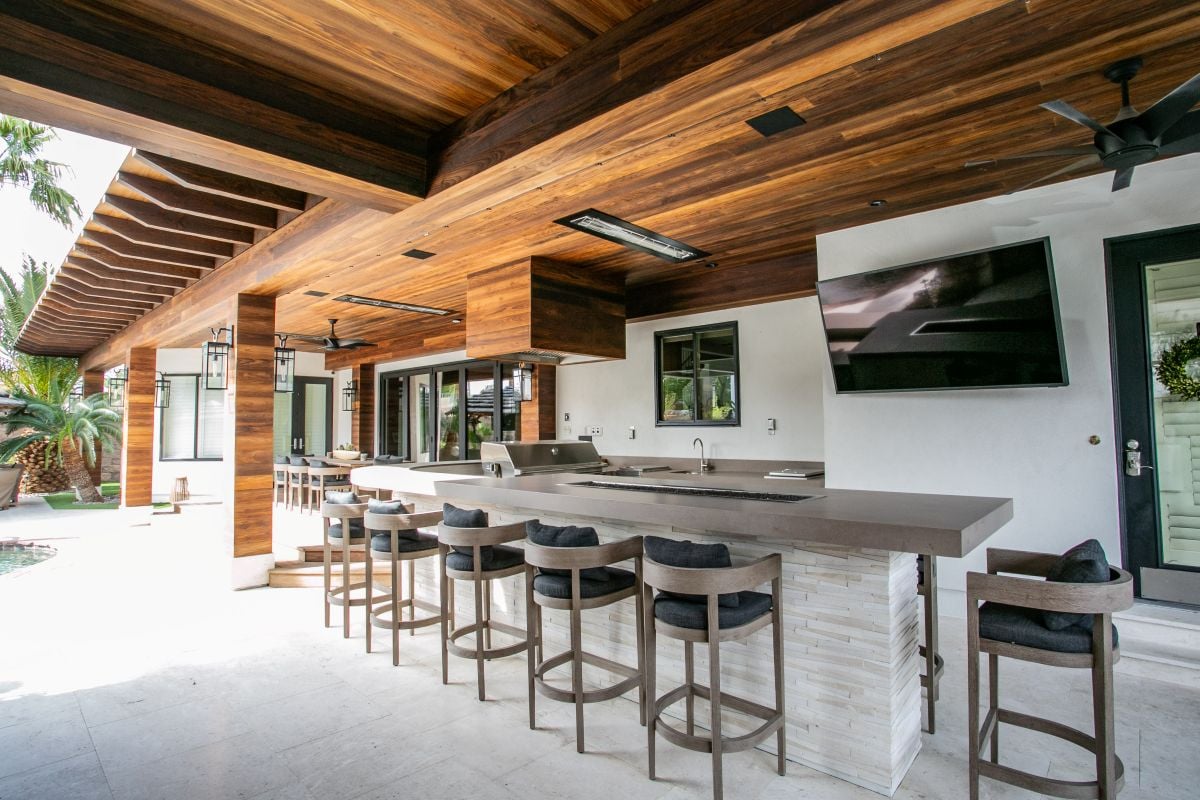
An architecturally complicated space, the renovated entertainment area of a Las Vegas, Nevada, residence is given a sense of unity by cladding the ceiling, soffits, and columns with thermally modified Pennsylvania poplar from Americana. The heat-treated hardwood not only enhances the space’s aesthetics with its burnished, natural tones, but also provides improved resistance to warping, decay, and insects—ideal for the desert climate. Photo courtesy of Henri Sagalow Photography
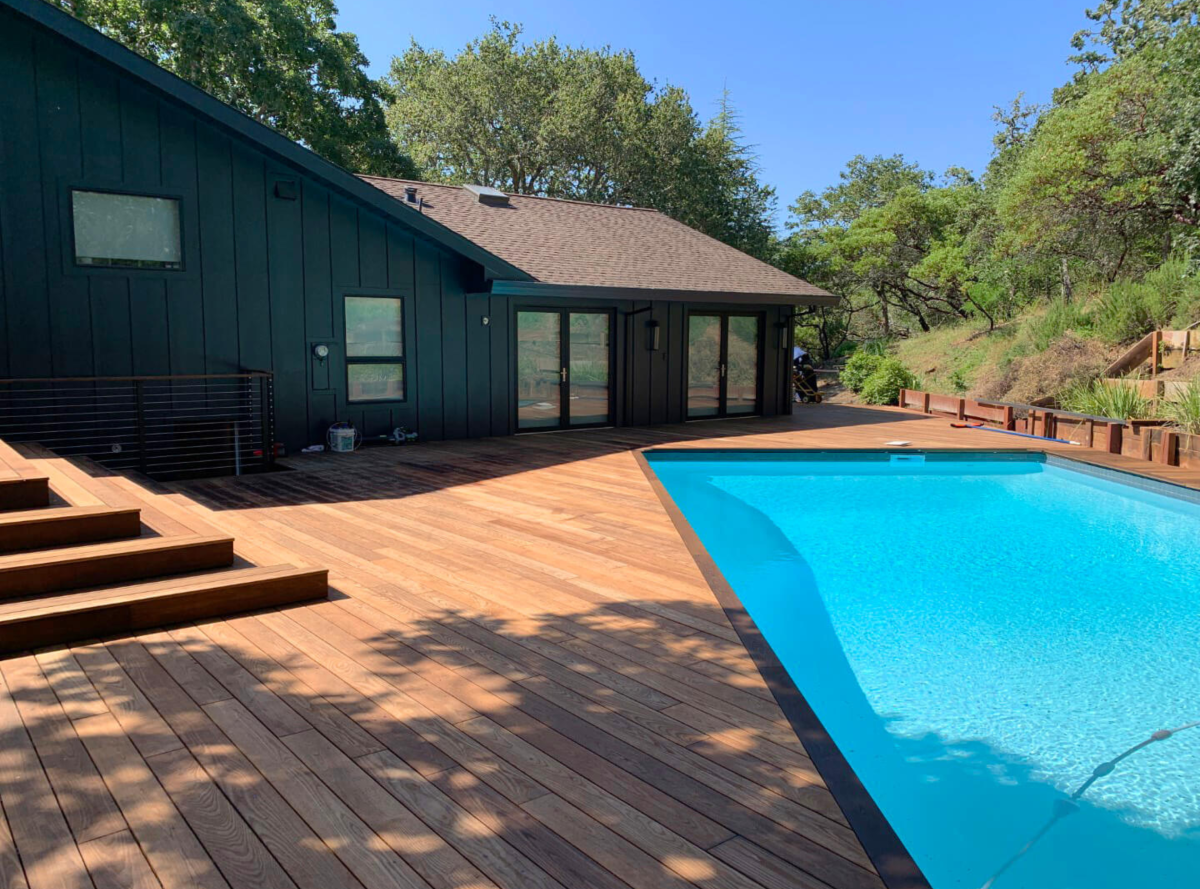
About 4,000 square feet of thermally modified Appalachian ash decking, also from Americana, creates a seamless flow around the pool of a Sonoma County, California, residence. Part of a multilevel wrap-around terrace designed and built by Deck Supply Warehouse, the deck’s heat-treated timber means the space will retain its glamorous looks and structural integrity for many years to come. Photo courtesy of Americana Thermally Modified Hardwoods
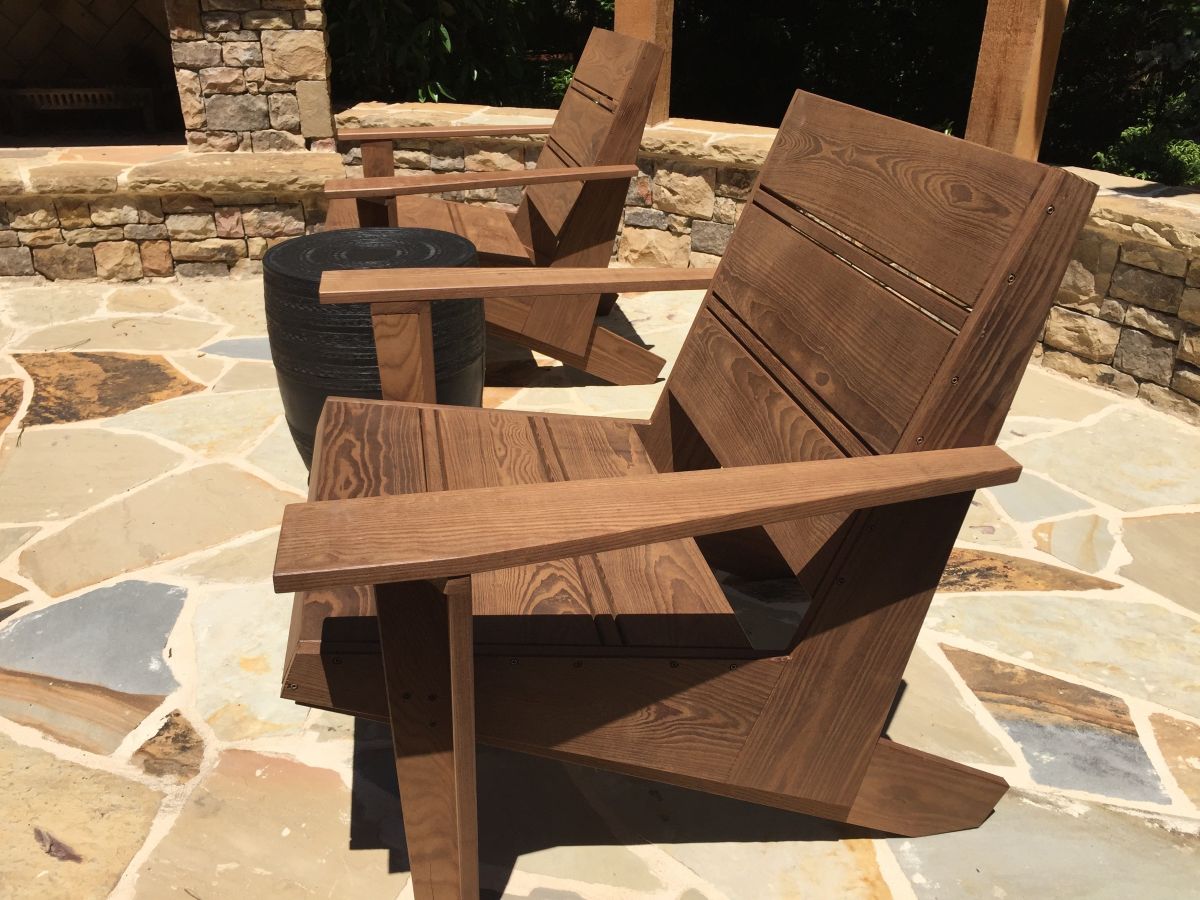
Thermally modified hardwood’s resistance to moisture, decay, and warping make it ideal for outdoor furniture, as does another attribute: During the heating process, natural sugars in the wood caramelize, giving the timber a warmer, more pronounced hue—a phenomenon showcased in these classic Adirondack chairs made from VikingWood thermally modified ash, which has acquired a rich, coffee-like hue that accentuates its characterful grain. Photo courtesy of VikingWood, AHC Hardwood Group
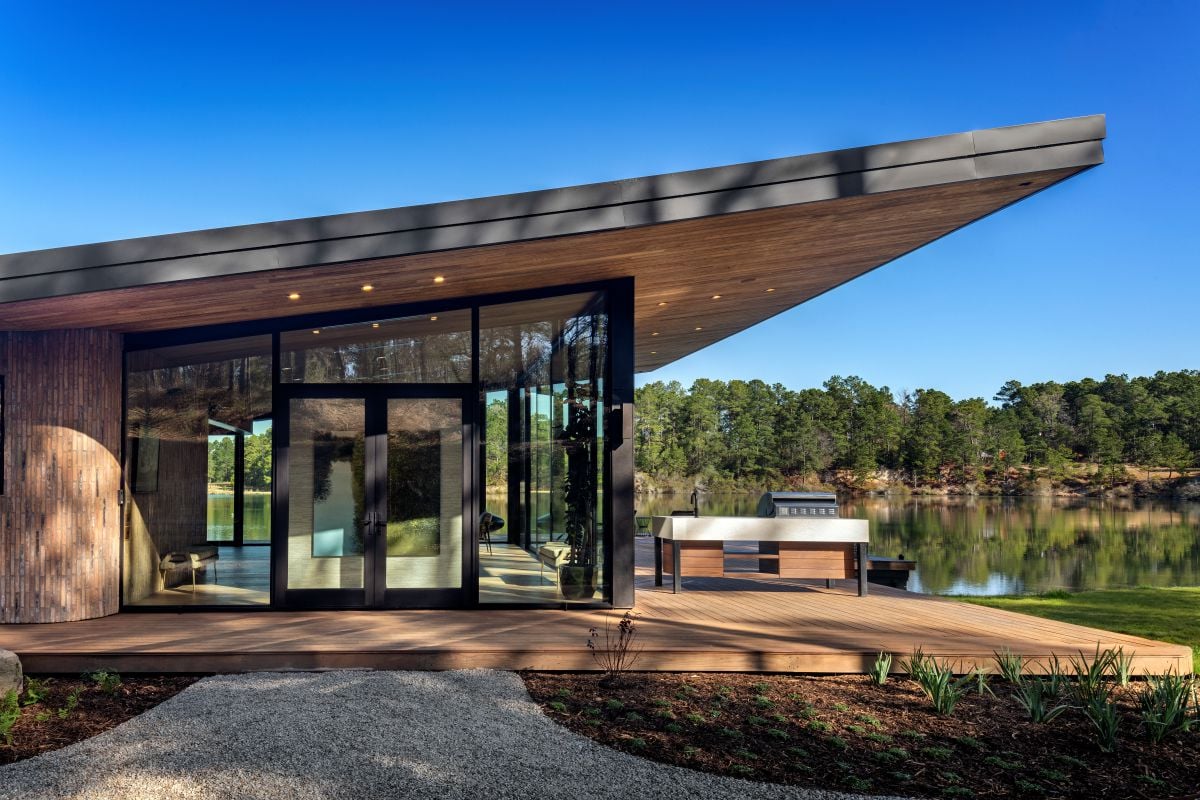
By using thermally modified ash from Arbor Wood Co. to clad both the interior ceiling and the exterior roof overhang of this lake house in Riverside, Texas, Collaborative Designworks gives a master class in creating continuous indoor-outdoor living. The treated hardwood not only frames the water views perfectly, it also makes those deep soffits as low-maintenance as they are spectacular. Photo courtesy of Joe Aker/Aker Imaging
Visit www.hardwoodinfo.com for more about using American hardwoods in your home.
